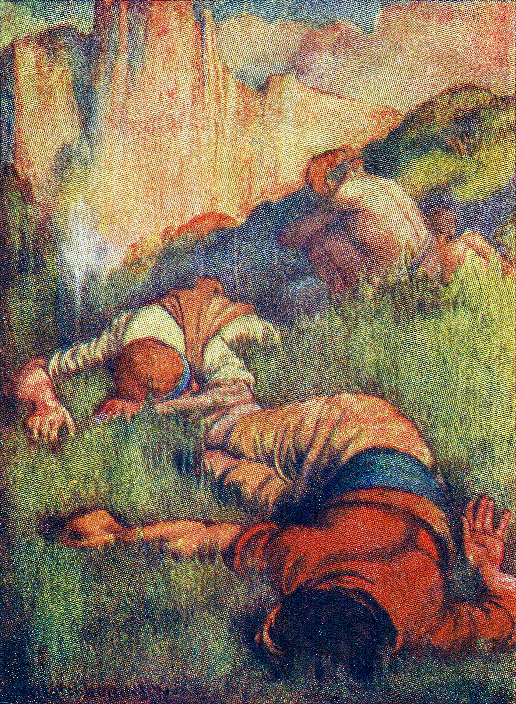In Greek mythology, lotophages or the lotus-eaters were a race of people living on an island dominated by the lotus tree off coastal Tunisia (Island of Djerba), a plant whose botanical identity is uncertain. The Lotophagi race in the Odyssey are said to eat the fruit of the lotos “sweet as honey”. The lotus fruits and flowers were the primary food of the island and were a narcotic, causing the inhabitants to sleep in peaceful apathy. After they ate the lotus, they would forget their home and loved ones and long only to stay with their fellow lotus-eaters. Those who ate the plant never cared to report or return. Figuratively, “lotus-eaters” denotes “people who spend their time indulging in pleasure and luxury rather than dealing with practical concerns”.
| Alias Lotus-eaters |
| Real Names/Alt Names Lotus-eaters |
| Characteristics Myths & Legends, Prehuman Epoch |
| Creators/Key Contributors Homer |
| First Appearance Greek mythology |
| First Publisher ○ |
| Appearance List Literature: Homer’s Odyssey (c. 8th century BCE, English 1614), Homer’s Iliad (c. 8th century BC), Virgil’s Aeneid (29 to 19 BC), 5th century plays by Aeschylus, Sophocles (Ajax, Philoctetes), and Euripides (Hecuba, Rhesus, Cyclops), Plato’s Hippias Minor, Shakespeare’s Troilus and Cressida (1602), Dante Alighieri’s Divine Comedy (1308–1320), Lord Tennyson’s “Ulysses” (1842), The Story of Greece: Told to Boys and Girls by Mary Macgregor (191-?) [Internet Archive], Frederick Rolfe’s The Weird of the Wanderer (1912), James Joyce’s Ulysses (1918–1920), Nikos Kazantzakis’ The Odyssey: A Modern Sequel (1938), Eyvind Johnson’s Return to Ithaca (1946), The Luck of Troy (1961), et. al. Film: The Mysterious Island (1905), L’Odissea (1911), Ulysses (1954), Ulysses (1955), The Trojan Horse (1961), The Fury of Achilles (1962), Ulysses Against the Son of Hercules (1962), The Lion of Thebes (1964), et. al. Comics: Blue Bolt vol. 2 #1-2, Treasure Chest vol. 14 #5. |
| Sample Read The Odyssey (Translated by W. C. Bryant, August, 1871) [Standard eBooks] |
| Description In Greek mythology, lotophages or the lotus-eaters were a race of people living on an island dominated by the lotus tree off coastal Tunisia (Island of Djerba), a plant whose botanical identity is uncertain. The Lotophagi race in the Odyssey are said to eat the fruit of the lotos “sweet as honey”. The lotus fruits and flowers were the primary food of the island and were a narcotic, causing the inhabitants to sleep in peaceful apathy. After they ate the lotus, they would forget their home and loved ones and long only to stay with their fellow lotus-eaters. Those who ate the plant never cared to report or return. Figuratively, “lotus-eaters” denotes “people who spend their time indulging in pleasure and luxury rather than dealing with practical concerns”. |
| Source Lotus-eaters – Wikipedia |

